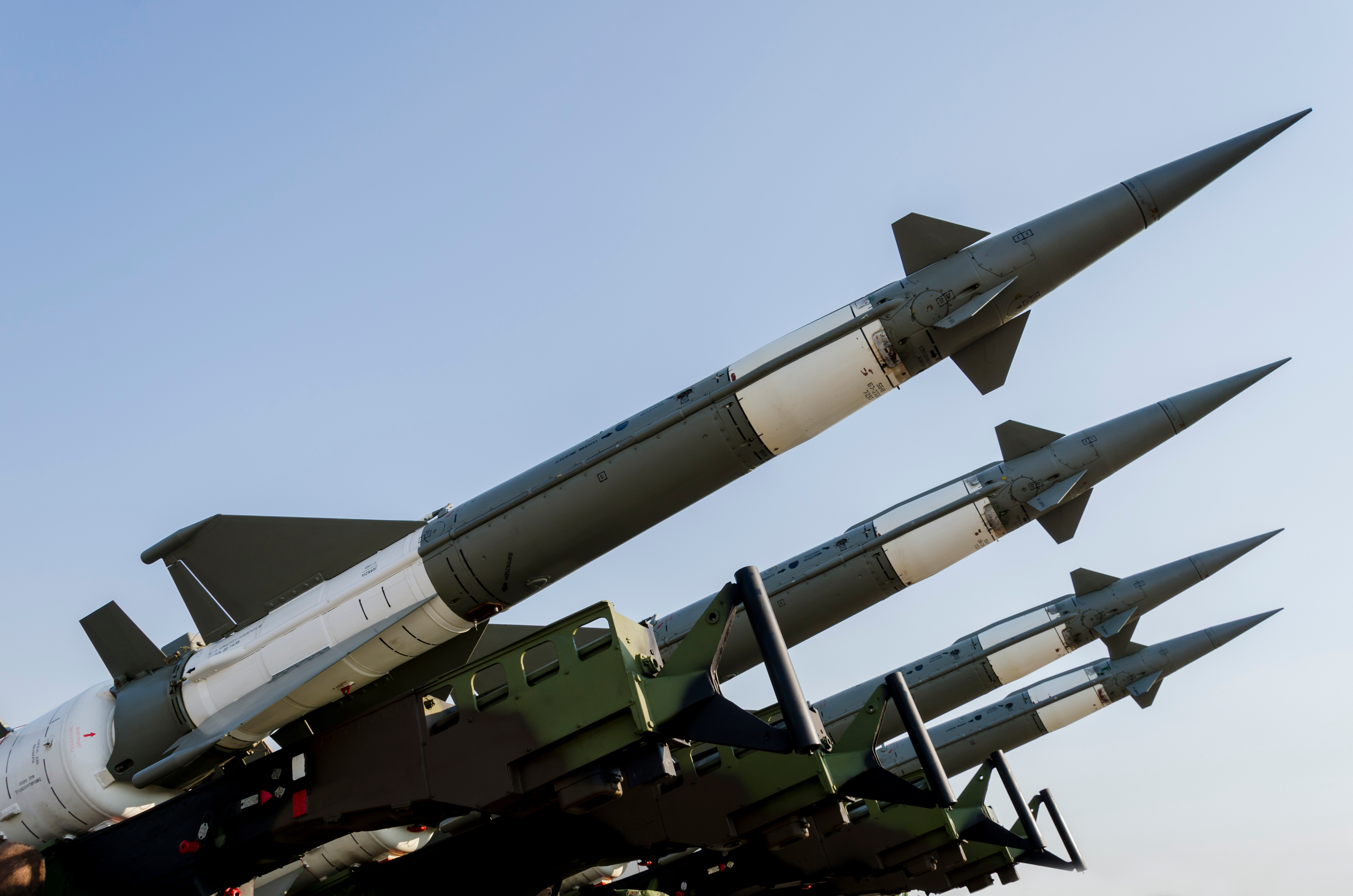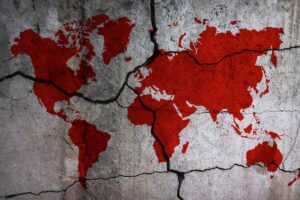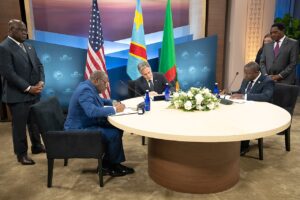The Red cell project
The Red Cell was a small unit created by the CIA after 9/11 to ensure the analytic failure of missing the attacks would never be repeated. It produced short briefs intended to spur out-of-the-box thinking on flawed assumptions and misperceptions about the world, encouraging alternative policy thinking. At another pivotal time of increasing uncertainty, this project is intended as an open-source version, using a similar format to question outmoded mental maps and “strategic empathy” to discern the motives and constraints of other global actors, enhancing the possibility of more effective strategies.
Has the specter of Ukrainians valiantly fighting, pushing back Russian President Vladimir Putin’s tyranny in defense of a core principle of the liberal order — sovereignty — renewed America’s elan vital for global leadership, the savior redux of an otherwise doomed Free World?
“The defense of Ukraine is a defense of the liberal hegemony.” So argues Robert Kagan, a masterful polemicist, and one of the most eloquent exemplars of the Exceptionalist school, in Foreign Affairs: “Russia’s invasion has changed Americans’ views not only of Ukraine but also of the world in general and the United States’ role in it.” Reflecting the current zeitgeist, Politico, in a piece on the recent Davos meeting proclaimed, “The world is bullish on America and American Power.”
Kagan reprises the exceptionalism driving the necessity of U.S. benevolent hegemony. It is a familiar argument. His series of books, such as The Jungle Grows Back, are variations on a theme: U.S. primacy or a Hobbesian world. He and others in the foreign policy establishment see the U.S. response to Ukraine as emblematic of what has animated America since its rise in the late 19th century.
Kagan paints a compelling, if selective, historical canvas: The United States was free riding on Pax Britannica into the 20th century. As Britain’s naval hegemony underpinning the liberal order began to erode, the U.S. reluctantly began to replace it. By World War I, President Woodrow Wilson did not fear that the United States’ direct physical security was threatened, but rather that the global system was imperiled. He began to intercede, first with the quiet diplomacy of Col. Edward House and, after his efforts at a negotiated compromise failed in 1916, with U.S. military intervention and a peace plan to “make the world safe for democracy.”
A similar logic of moral imperative applies to President Franklin D. Roosevelt’s initial incremental involvement in World War II and, after the Pearl Harbor attack, its full entry. Kagan cites FDR’s elegant warning in 1939 that “there comes a time in the affairs of men when they must prepare to defend, not their homes alone, but the tenets of faith and humanity on which their churches, their governments, and their very civilization are founded.” After World War II — and unlike the post-World War I Treaty of Versailles and Wilson’s failed League of Nations — the United States established a less punitive global order, including the founding of the U.N. and Bretton Woods finance and trade institutions that generated 70 years of unprecedented stability and prosperity for the West, and, in the last 30 years, for the rest of the world.
This state of affairs persisted after the Cold War, from 1990 to 2001, but violently ended with 9/11 and the Iraq and Afghanistan Wars. Then the 2007-08 global financial crisis spurred new uncertainties of a post-Cold War multipolar milieu, a redistribution of wealth and power and a time of unfinished transformation.
Enter Ukraine. Ergo, a resurgence of American hegemony standing in the way of tyranny. Certainly, the December 2022 U.S. visit of Ukrainian President Volodymyr Zelenskyy enthralled Washington and an America much in need of a hero. U.S. support for Ukraine appears popular. President Joe Biden’s success in mobilizing European and Asian allies in support of Ukraine has been impressive, a Cold War-like consensus.
The advocates for perpetual U.S. global primacy do have a point. All things considered, U.S. primacy with its enlightened self-interest — in defense of principles — has broadly been a source of stability and prosperity. Nevertheless, it is a specious argument to say that realists conceive national interests only as direct attacks on U.S. soil. Rather, realists argue for balances of power, opposing Russian and Chinese attempts at hegemony over Europe and Asia, and occasional intervention to restore that balance. They are skeptical of foreign meddling for other ends, which can lead to overreach.
Many advocates of perpetual U.S. primacy dismiss such concerns. They see failed foreign adventurism as stemming less from the folly of an expansive definition of U.S. interests, than as an aberration of liberal hegemony. They tend to discount those failed U.S. interventions that ended in catastrophe, including Vietnam, Afghanistan, Libya, and especially the 2003 Iraq War. Both neoconservatives and liberals were cheerleaders for these fiascos. The destabilizing destructiveness of these unnecessary interventions spawned lingering global resentment and cannot be easily airbrushed from Americans’ collective memory.
Advocates of perpetual U.S. primacy discount too many failed U.S. interventions that ended in catastrophe, but they cannot be so easily airbrushed from most Americans’ collective memory.
Kagan and others argue that, in the aftermath of 9/11, Americans saw Afghanistan and Iraq as matters of security. A good case can be made for the initial effort to overthrow the Taliban. Iraq was an unwise contrivance, however, as many in and outside the Bush administration warned at the time. A chaotic, unsettled Iraqi state, like a Communist-led Vietnam, was not the undoing of the Western world. It is difficult to argue, however, that past debacles did not undermine American power. Was that merely the price of liberal order maintenance? Or does the logic of exceptionalism to “make the world like us” compel us to ignore the costs?
Kagan echoes the inflated threat rhetoric seen from the Vietnam and Iraq wars to the current Ukraine conflict and debates over Taiwan: “The liberal world order will be threatened if Ukraine falls.” The international order is rules-based, but, Kagan candidly cites Reinhold Niebuhr’s observation, that “these rules themselves are a form of American hegemony.” He adds, “They are not neutral but are designed to sustain the international status quo, which for eight decades has been dominated by the American-backed liberal world. The rules-based order is an adjunct to that hegemony.”
Is more continuity in a recycled binary world of China/Russia strategic competition the predetermined future? In a word, no. The U.S. rise of the past 130 years has essentially peaked. Wealth and power have diffused. Witness much of the Global South — including democracies like India, Brazil, Mexico, South Africa, and Turkey — rejecting the Western consensus on Ukraine. This is symbolized by new groupings like the BRICS (Brazil, Russia, India, China, and South Africa), and associations—Xi Jinping’s warm welcome in Riyadh, Saudi Arabia; and Turkey’s provision of drones to Azerbaijan.
The problem with the notion that Ukraine has given the U.S.-led order a second wind to take on a new Cold War-like threat — the combined China/Russia authoritarian menace — is that the world is not static.
The problem with the notion that Ukraine has given the U.S.-led order a second wind to take on a new Cold War-like threat — the combined China/Russia authoritarian menace — is that the world is not static. It is breaking down amid a historic, but still uncertain, transformation. It is already fragmenting amid growing economic nationalism. The United States appears oblivious to the dilemmas arising from its past success. Similarly, the British Empire undergirded globalization in the 19th century and saw its power diminish as others’ wealth and power rose and technology improved.
Today, U.S.-driven globalization has ushered in an increasingly multipolar world, but a disorderly one with much debt, hunger, and underdevelopment in the Global South. Meanwhile, democracies like India, Indonesia, Brazil, Mexico, and South Africa do not define themselves as part of the Free World but as autonomous actors pursuing national interests. These countries do not want to align with any of the major powers: the West, Russia, or China.
Past Performance No Guarantee of Future Success
For the U.S. public, domestic concerns will always trump foreign interests. Polling shows that Americans are already growing more concerned about the magnitude of assistance going to Ukraine. Foreign aid has never been popular.
Similarly, major trade and investment accords that would have deepened U.S. economic integration in Europe were shot down in a backlash to globalization. This was underscored when President Donald Trump killed President Barack Obama’s plan for the Trans-Pacific Partnership and the Transatlantic Trade and Investment Partnership regional trade agreements linking the U.S. with large swaths of Asia and Europe. There is now a bipartisan anti-trade consensus, with lawmakers fearing job losses to foreign competition, though polls suggest public opinion is more pro-trade. China’s influence is built on trade and subsidized investment, not just with Asian neighbors, but also in Africa and Latin America — regions that used be closer to Europe and the United States.
The U.S. foreign policy establishment has long resisted the idea of multipolarity. It is much more comfortable with a bipolar world in which the U.S. replicates its victory over the Soviet Union, only this time with China as the adversary. President Biden says he does not want a Cold War, but it is impossible to read the National Security Strategy (NSS) without seeing the United States girding itself again for a fight with a near-peer competitor. Polling, however, shows that most Americans, though increasingly negative about China, see the Chinese more as competitors than as enemies, suggesting that Americans are not prepared for an all-out conflict with a nuclear power and the world’s second-largest global economy.
Most Americans, though increasingly negative about China, see the Chinese more as competitors than as enemies.
One lesson of the Cold War is that survival is a mutual interest. Yet many see Chinese and Russian ambitions as unrelenting and inflexible. As such, there can be no accommodation, no modern Westphalian or Concert-of-Vienna-type order, no balance of power arrangements. Echoing Biden’s binary absolutism, other proponents of perpetual primacy like Hal Brands argue that sustained U.S. hegemony remains the most sensible US grand strategy. The assumption here is that U.S. power has not relatively declined — as the NSS also assumes, it is forever 1991. If that were the case, we might agree with this conventional wisdom. But it is not, and we cannot.
When he designed the containment strategy to fight the Cold War, George Kennan understood that the United States did not have the appetite for a war with the Soviet Union. President Harry S. Truman and other leaders who experienced firsthand the unpredictability and failures of both world wars had a sense of U.S. limits, particularly after Moscow acquired nuclear weapons. Even while Russia’s future looks grim and some believe that China has reached a stagnating peak, resurgent optimism for liberal hegemony with no limits seems oblivious to both domestic and global realities.
Multipolarity is inherently more complex and less stable than hegemonic or binary world orders. Nevertheless, history suggests it can work, especially when there are few viable alternatives. Why not the example of Britain’s victory over Napoleonic France? By creating a balance of power among allies — and even with its opponent, France — Britain ushered in the 19th century Long Peace with a Concert of Europe. As we learned from near catastrophes during the Cold War, coexistence in the nuclear era is more complicated. But the logic of nuclear deterrence persists. Confronted with the risk of mutual assured destruction, even the most powerful nations must reach some accommodations.
The United States is well positioned to adapt its leadership to a multipolar world if it understands the limits of power, employs strategic empathy to grasp others’ interests, and creates coalitions to share the burden and counter the excesses of Beijing and Moscow.
“Only American power can keep the natural forces of history at bay,” is Kagan’s punchline. Such DC conventional wisdom notwithstanding, nostalgia is not a strategy. In terms of economics, technology, and nuclear weapons, today’s world is multipolar. The United States is well positioned to adapt its leadership to this burgeoning reality if it understands the limits of power, employs strategic empathy to grasp others’ interests, and creates allied coalitions with whom to share the burden and counter the excesses of Beijing and Moscow. At the same time, Washington should cooperate with China and Russia on shared global interests and seek an inclusive balance based on “must haves” rather than inflexible aspirations.




